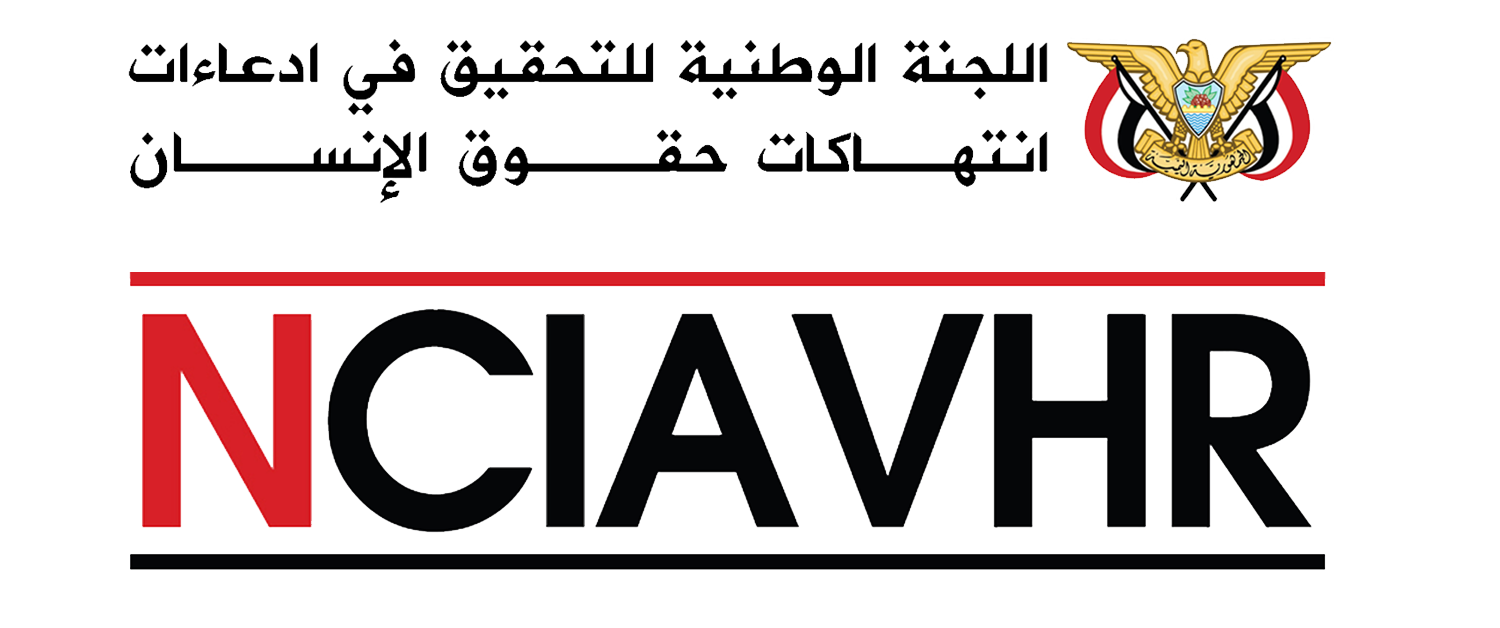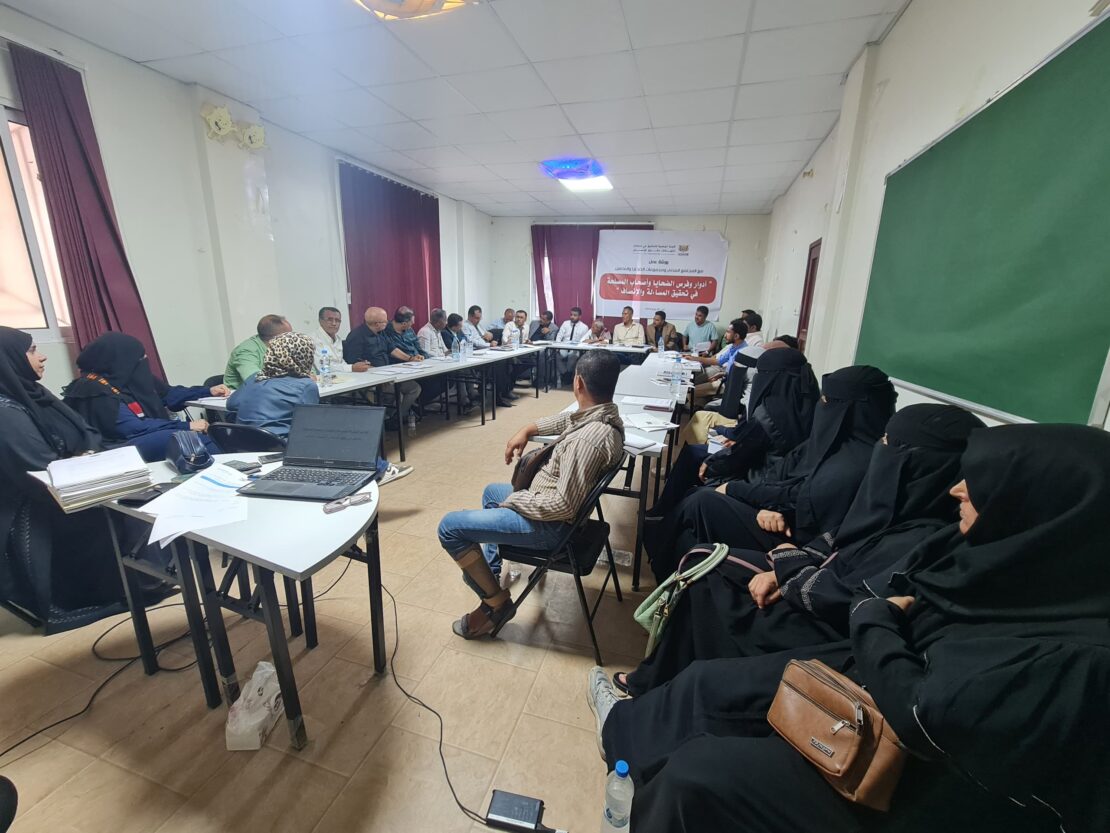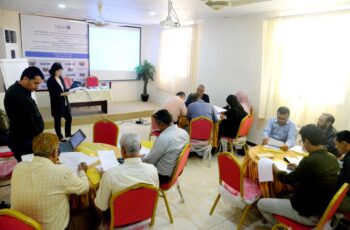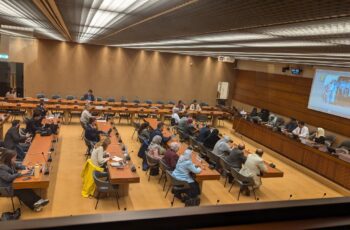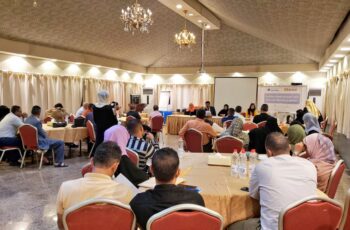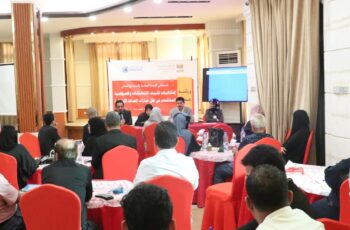NCIAVHR Discusses Roles and Opportunities in Achieving Accountability and Justice for Victims of Violations
Taiz | July 15, 2024
Today, the National Commission to Investigate Alleged Violations of Human Rights (NCIAVHR) held a workshop in Taiz to discuss opportunities for achieving accountability and justice for victims of violations, and the forms of transitional justice deemed effective by the victims and suitable for the local and national context.
The workshop was attended by 28 participants, including judges, lawyers, legal professionals, unions, associations, and a group of victims. Commission member Judge Ishraq Al-Maqtari highlighted the significant role of both official and unofficial human rights protection bodies in reducing violations and working towards accountability and justice for victims, emphasizing the importance of strengthening efforts and cooperation between these entities and the Commission to reach and provide justice for victims, and ensuring perpetrators are not immune from punishment.
The workshop sessions addressed the common goals shared by the Commission, civil society, stakeholders, and victims’ groups in creating opportunities for accountability and justice. The various roles and contributions of these entities in judicial processes were discussed, emphasizing their impact on and reflection in building a sustainable and effective peace process based on human rights protection and justice for victims.
Participants presented important proposals to enhance victims’ rights and access to justice by applying the law and current feasible options for accountability procedures through the national judiciary. They discussed using these tools individually or collectively by victims, intensifying documentation of violations, and the role of civil society, victims’ associations, and stakeholders in supporting the establishment of a specialized court and prosecution for human rights violations.
The workshop concluded with several recommendations aimed at activating the right to access the judiciary and achieving justice, implementing urgent interim measures to alleviate victims’ suffering from certain types of violations, and fostering collaboration among civil society, key actors, the Commission, and stakeholders to broaden the dialogue on a suitable transitional justice strategy for all cases in Yemen.
